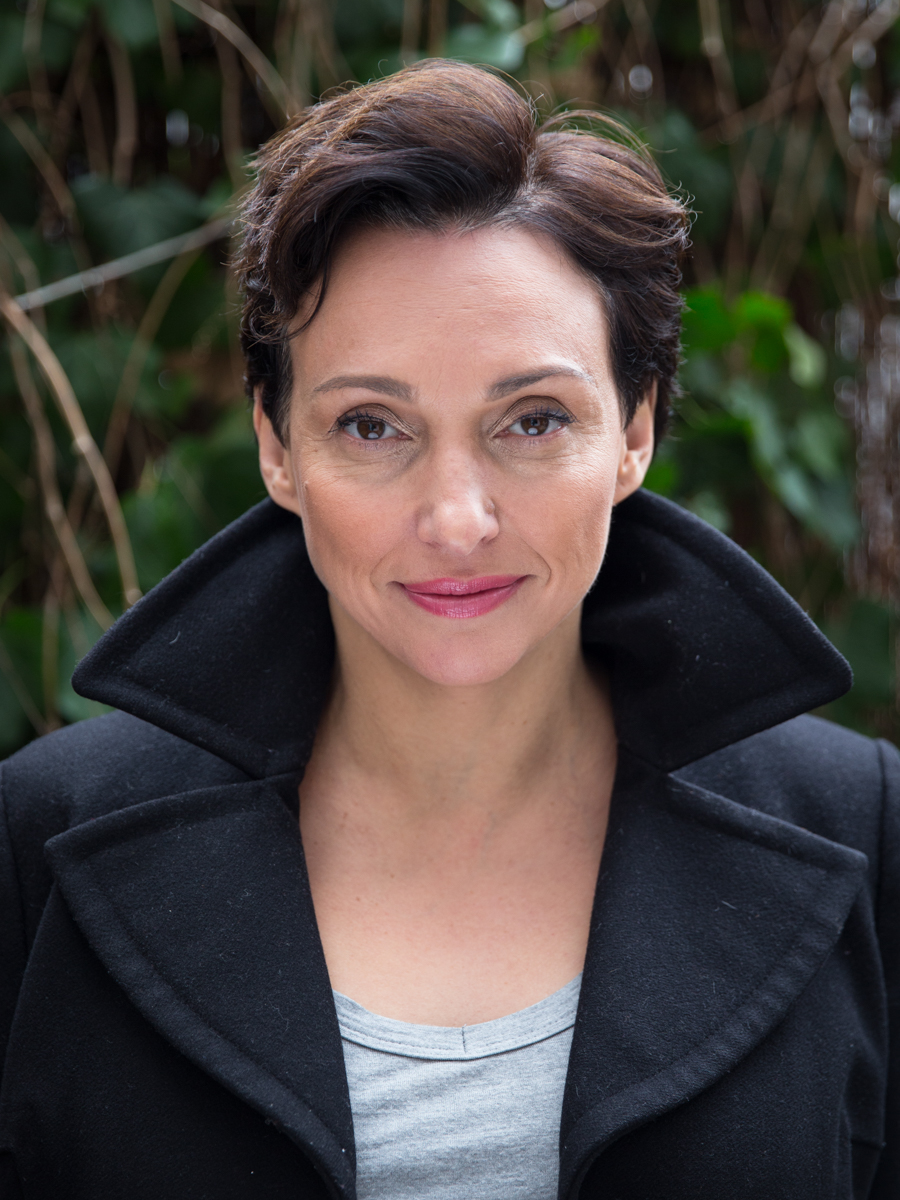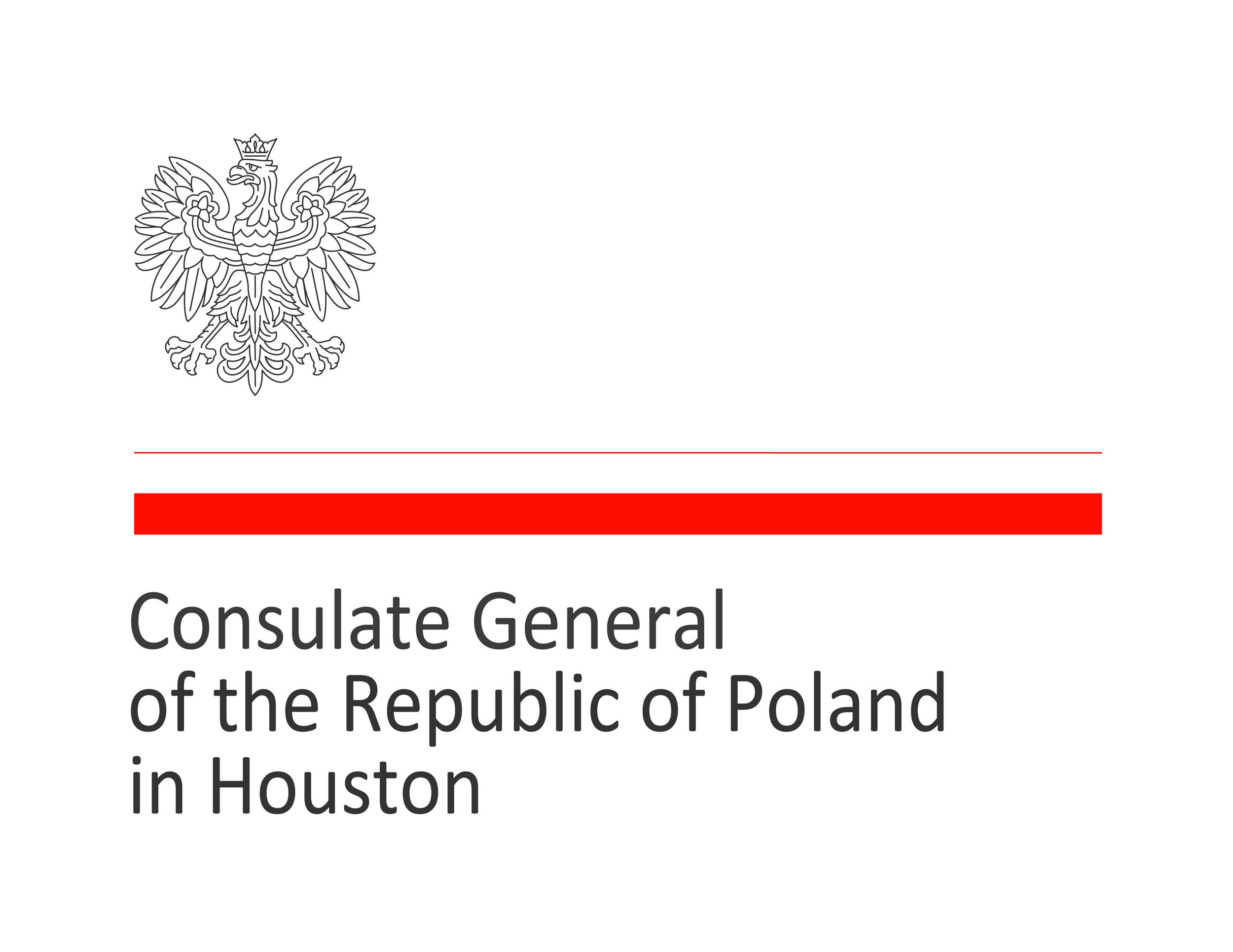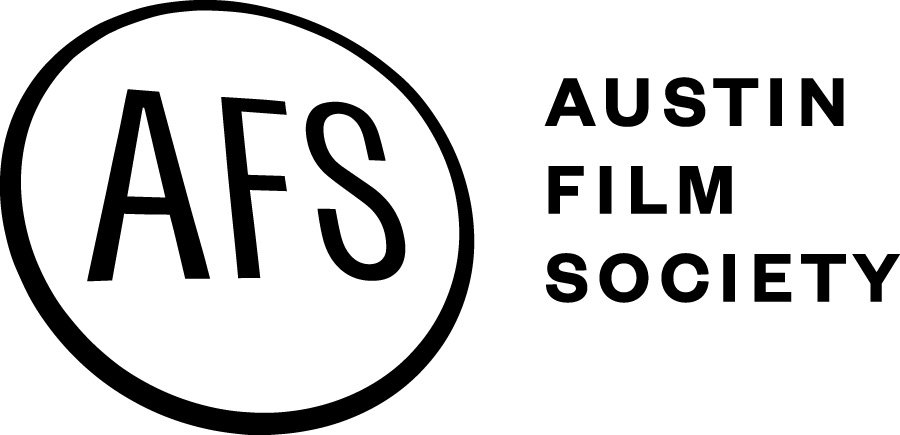During the 11th edition of Austin Polish Film Festival, we had a pleasure of hosting various guests from film industry, academia, and media.
Director and screenwriter. Graduated from FAMU in Prague and culture studies at the Department of Oriental Studies at the University of Warsaw. Debuted with a series of short docs, including ‘I love Christ’ (2001), ‘Józek and his Children’ (2007), ‘Male Radosti’ (2007), ‘Six Octave’ (2008) and work for television (‘M jak miłość’, Barwy szczęścia’, ‘Singielka’). Her feature debut, ‘Hel’ (2009), met with acclaim at the Koszalin ‘Młodzi i Film’ Festival. In 2015 her second feature premiered: ‘These Daughters of Mine’ were called a revelation at the Gdynia Film Festival, receiving the audience and the press awards. The film went to triumph at the Polish Film Awards - the Eagles 2016, where Dębska received the audience award and the award for best screenplay. "These Daughters of Mine” was a box office hit with over 700 thousands viewers, and also received more then 15 awards in Poland and abroad. Last year also marked her return to documentaries: ‘Actress’, devoted to the late Elżbieta Czyżewska, won the Eagle for best document.
In attendance on Thursday, October 13th, after the screening of These Daughters Of Mine.
Sarah Jane Murray is an Irish-born academic and regional EMMY award-nominated screenwriter and filmmaker who works in the United States. She is also known for applying story design principles to corporate and not-for-profit brand and impact strategy, and has won numerous creative awards for story-driven branded content and video-based impact campaigns, including bronze and silver TELLY awards, communicator awards of excellence, and the communicator award of distinction.
Agnieszka Żulewska was born in 1987 in Ozimek, Poland. At the age of 23 she graduated from PWSFTviT, a famous film school in Łódź. Agnieszka started her career playing in films and tv series. She gained recognition thanks to her unforgettable roles in such films as Chemo (2015, dir. Bartosz Prokopowicz) and Demon (2015, dir. Marcin Wrona). For the role of Lena in Chemo, Agnieszka received the Zbyszek Cybulski Award for the most promising young actress in polish cinema.
In attendance on Friday, October 14th after the screening of Chemo.
Kamila Kuc, Ph.D., is a writer, experimental filmmaker and curator. Her work reflects her interest in how film, as a technology of memory, can be seen as an innovative creator of memories themselves. Her films explore complex relationships between personal and collective memories, especially those which subvert the social and political identity constructions. Kuc was the 2016 Artist in Residence at Basement Films, Albuquerque, New Mexico, USA. She is the recipient of numerous international grants, namely New Mexico Arts and McCune Charitable Foundation, New Mexico Humanities Council and British Council, among others. She is a co-editor, with Michael O'Pray of The Struggle for Form: Perspectives on Polish Avant-Garde Film 1916-1989 (Columbia University Press, 2014). Her monograph The Promises of Avant-Garde Film: Polish Experiments in Film from Expressionism to Constructivism is forthcoming with Indiana University Press later this year. Kuc is a Director of Media Production Studies (BA)/Senior Lecturer at Coventry University.
In attendance On Saturday October 15th after the shorts block On re-appropriating Cultural Memories
Zbigniew Banaś is a film critic, teacher, translator, and a radio and television journalist. Banaś reviews films for the Kino monthly magazine in Poland. He is affiliated with WPNA (1490 AM) and WNVR (1030 AM) radio stations in Chicago, and with Chicago’s Polvision TV (Ch. 24.4). As an instructor in International Film at Loyola University in Chicago, he teaches film-related classes for the Road Scholar Program, and conducts film discussions at Talk Cinema and the Sinai Congregation. Banaś is the co-founder of the Polish Film Festival of America and serves as the Master of Ceremonies of the Polish Film Festivals in Chicago and Los Angeles. He is an accredited journalist at over 20 film festivals, including Cannes, Berlin, Toronto, and Sundance. He is a member of the Chicago Film Critics Association.
Elliott is currently the International Programs Coordinator in the Department of Slavic and Eurasian Studies at the University of Texas at Austin. Prior to moving to Austin in 2009 he spent 20 years as a field artillery officer and Russian specialist in the U.S. Army serving in a wide variety of leadership and staff positions here in the US and overseas. In the early 2000s, he worked closely with the Polish Army during yearly joint US/Polish military exercises held at the Drawsko-Pomorskie training area in western Poland. Elliott has traveled extensively in Poland including several genealogical research trips to Mlawa, the city of his great-grandfather’s birth.
Born in Płock – 1992 – He graduated from Music School on piano, and Warsaw Film School in a field of Directing. His diploma movie Strong Coffee is not that bad has won many awars on various festivals in Poland and abroad. Alek gained his experience on the sets like Obywatel J.Stuhr, Bridge of Spies S.Spielberg, Planet Single M.Okorn, True Crimes A.Avranas, as an 1st AD, 2nd Unit Director or AD. Now he is also studying at the University of Warsaw on the Artes Liberales department.
In attendance on Sunday October 16th, after the screening of Strong coffee isn't that bad.
Janusz Zaorski is a Polish film director, scenarist and actor, representative of the cinema of moral concern (Polish: kino moralnego niepokoju), trend in Polish cinema. Zaorski has directed mainly psychological dramas, comedies and TV series.
Zaorski graduated National Film School in Łódź in 1969. He made his own individual film director debut in 1970. In 1987 Zaorski was selected as a chairman of the Polish Federation of Film Societies (Polska Federacja Dyskusyjnych Klubów Filmowych). He was also an art director of the Film Group "Dom" (since 1988), member of the Cinematography Committee (1987–1989), president of the Radio & Television Committee (1991–1992), president of The National Council of Radio Broadcasting and Television (Krajowa Rada Radiofonii i Telewizji; 1994–1995), member of the European Film Academy. Zaorski's new docudrama, "Generations", will be shown during 2016 Austin Polish Film Festival.
In attendance on Sunday October 16th, after the screening of Generations.
After receiving a UT-Austin M.A. degree in English/RTF in 1968, Chale spent five years teaching in South Texas, Puerto Rico, and New York City before returning to a fortunately evolving Austin to begin a 25-year career as a full-time professor at Austin Community College where he founded the Radio-TV-Film Department, served as Chair of Humanities for 7 years, and retired in 1998. A founding board member of Austin Film Society since 1985, he resigned in 2002 to take the position of AFS Director of Programming and enjoyed 12 years of programming a wide array of films at various AFS venues and working with many Austin film organizations. Now, retired for a second time in his life, he is back on the AFS board while continuing rewarding relations with Austin's film organizations.
Chale has been a mentor to the APFF for many years and a frequent speaker at the festival and is a judge for APFF International Short Competition.
He will introduce the film Eccentrics. The sunny side of the street on Sunday October 16th.




















Film producer. Co-founder, co-owner and Head of the Board of Studio Filmowe Kalejdoskop, founded in 1988. Graduated from the Management Faculty and the Journalism Faculty of the University of Warsaw. Lectures at the National School of Film, Television and Theatre in Łódź.
Zbigniew Domagalski produced a number of feature and documentary films. His most important productions were Stanisław Mucha’s ‘Hope’, co-produced with Cologne’s Pandora Film; Kinga Dębska’s ‘Hel’, co-produced with In Film Prague, Filip Bajon’s ’War of Love’ (Śluby panieńskie) which was seen by over a million viewers in the cinema. His last documentaries released in cinemas were Karolina Bielawska’s ‘Call me Marianna’ and Dębska’s and Konwicka’s ‘The Actress’. Zbigniew Domagalski is the producer of ‘These Daughters of Mine’ (Moje córki krowy).
In attendance on Thursday October 13th, after the screening of These Daughters of mine/ Moje Córki Krowy.